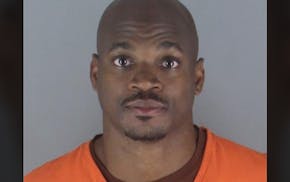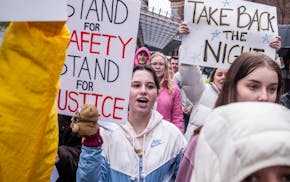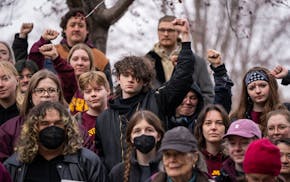Minnesota Gov. Tim Walz will debate Ohio U.S. Sen. JD Vance in front of a national audience for the first and only time on Tuesday night, in what could be the final televised debate of this year's presidential election.
No further presidential debates have been scheduled between Democratic nominee Kamala Harris and Republican Donald Trump, raising the stakes of Tuesday's vice presidential showdown. As they seek to introduce themselves to Americans, Walz and Vance are also tasked with delivering their campaigns' arguments to a national audience.
Election Day is five weeks away and early voting has already started in some states, including Minnesota.
Walz and Vance have traded attacks over the past couple of months while campaigning in battleground states across the country. Walz has slammed Vance and Trump as "weird people" who want to take away women's reproductive rights, while Vance has criticized the Minnesota governor's exit from the military and handling of the 2020 riots. Expect to hear those attacks again on Tuesday night.
Here's what you need to know about Tuesday's debate.
How to watch
The VP debate will start at 8 p.m. central time and last 90 minutes. It will be aired on CBS News (WCCO-TV in the Twin Cities area) and simulcast by other networks, including PBS, KSTP, KARE 11, Fox 9, CNN and Fox News.
The debate will be streamed on Paramount+, Hulu and on CBS News 24/7.
Walz and Vance will debate at the CBS Broadcast Center in New York, but there will be no audience. The moderators will be "CBS Evening News" anchor Norah O'Donnell and "Face the Nation" moderator Margaret Brennan.
Rules of the debate
There won't be any opening statements in Tuesday's debate, according to CBS. The candidates will be given two minutes to respond to each question and another minute for rebuttals. They will not be given any questions or topics in advance.
Both candidates' microphones will stay on during the debate, though CBS said it reserves the right to mute them if necessary. During this year's presidential debates, microphones were muted when it wasn't a candidate's turn to speak.
CBS said last week that it will be up to the candidates, not the moderators, to fact-check each other during the debate.
At the end of the debate, Walz and Vance will each have two minutes to give closing statements.
How Walz and Vance prepared
Walz prepared for the debate with the help of U.S. Transportation Secretary Pete Buttigieg, who played role of Vance in practice sessions. Buttigieg told the New York Times earlier this month that he was focusing on what he viewed as Vance's "faux populism" and how to pierce that "veneer."
Brian Fallon, the Harris campaign's senior communications adviser, told Politico that the Yale-educated Vance will be a "formidable debate opponent" for Walz. But Fallon said he expects Walz to laser in on Trump's record, forcing Vance to defend it.
Vance tapped Minnesota Republican U.S. Rep. Tom Emmer to play the role of Walz in debate practice sessions. Emmer and his team spent the past month studying Walz's debate history, his mannerisms and his policy positions.
Minnesota mentions likely
Don't be surprised if Minnesota gets a lot of shout-outs on Tuesday night, for better or worse.
Vance will likely bring up the riots that erupted in Minneapolis after the police killing of George Floyd. He also might mention bills that Walz signed into law in 2023 allowing unauthorized immigrants to obtain driver's licenses and making Minnesota a sanctuary for people seeking gender-affirming health care.
Walz will likely portray the state and what he's accomplished as governor in a more positive light. He proudly touts Minnesota as a state that lets women make their own reproductive health care decisions, and as a place that provides free school meals to all students.
50 years after the Fall of Saigon, 'invisible' Southeast Asian veterans seek deferred honor

State Patrol: Ex-Viking Adrian Peterson arrested in Twin Cities for driving drunk with four passengers in his car
FBI arrests a Milwaukee judge accused of helping a man evade immigration authorities

U holds 'Take Back the Night' rally as part of Sexual Assault Awareness Month

